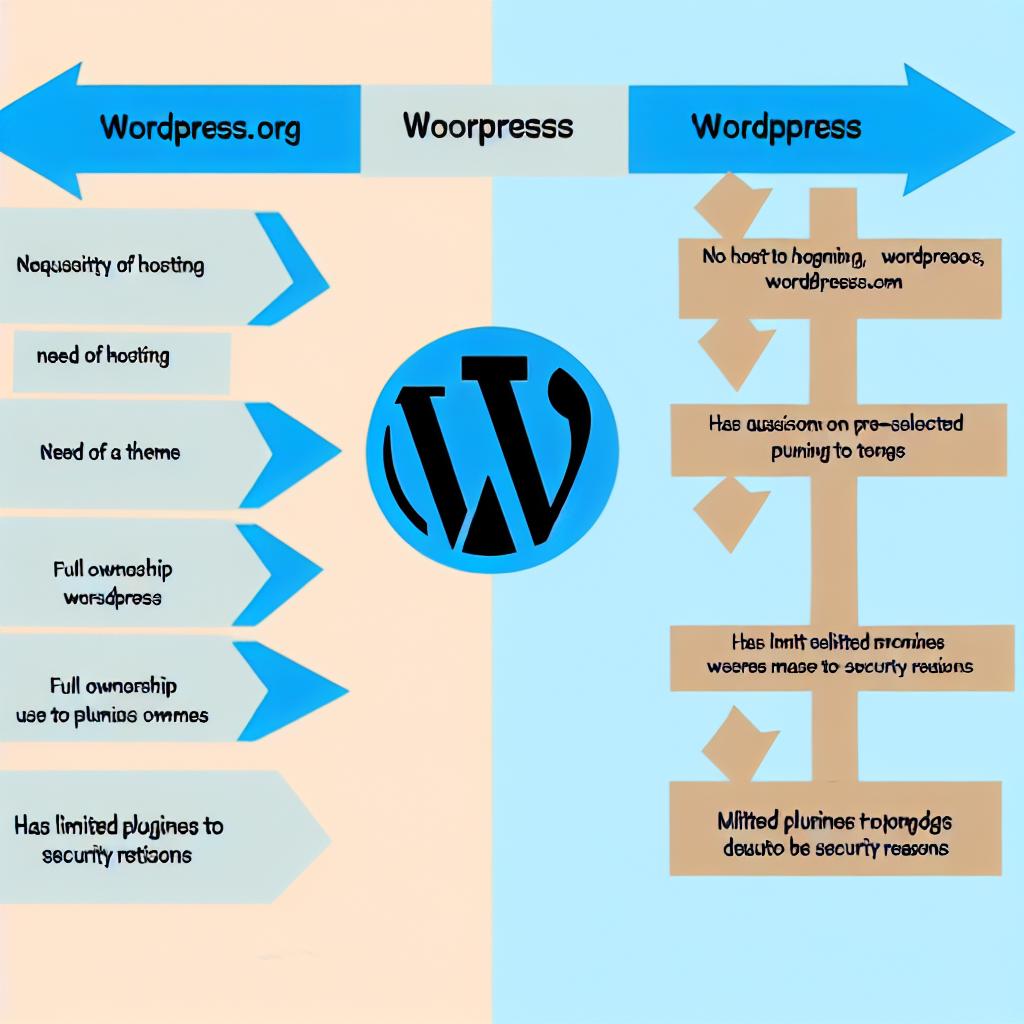Understanding WordPress.org and WordPress.com
When evaluating platforms for building a website or blog, the names WordPress.org and WordPress.com often come up. While they may seem similar, they cater to different audiences and offer distinct functionalities. A closer look at each can assist in making an informed choice.
WordPress.org: Self-Hosted Flexibility
WordPress.org serves as the hub for the open-source software that powers approximately a third of the web. This platform is popular among developers and more technically inclined users because of the vast flexibility it offers.
Full Control and Ownership: With WordPress.org, you download and install WordPress software on your own web hosting server. This grants you complete authority over site configurations, design, and content. Unlike many other website builders, WordPress.org does not impose restrictions on the types of content you can publish or the ways you can use your site.
Customization: This version of WordPress offers extensive customization capabilities. Access to thousands of themes and plugins allows for tailored website design and enhanced functionality. Users can modify PHP, HTML, and CSS codes to align with specific needs. The ability to tweak the backend code of a WordPress.org site makes it possible to achieve a unique and personalized website experience, accommodating specific functional or aesthetic requirements.
Monetization: Users are free to monetize their websites as they see fit. This means integrating advertisements, utilizing affiliate marketing, and more, without platform restrictions. Whether you want to install complex e-commerce systems, run membership sites, or simply earn from ad revenue, the possibilities are vast.
Costs: While the WordPress software itself is free, users must pay for hosting services, domain registration, and any additional premium themes or plugins they choose to utilize. The costs associated with WordPress.org can vary significantly depending on the service providers chosen, the level of traffic anticipated, and the specific plugins or themes you wish to employ.
For more detailed information, visit the official WordPress.org website.
WordPress.com: Hosted Experience
WordPress.com offers a different experience by providing a hosted solution that allows users to create websites using WordPress software without the need for independent hosting. Here are some notable aspects:
Ease of Use: For beginners or those preferring a straightforward set-up, WordPress.com can be attractive. The platform handles hosting and basic site maintenance, easing the website development process. This makes it an appealing option for users who may not have technical expertise or prefer not to deal with the logistical aspects of website management and hosting setups.
Limited Customization: While WordPress.com supports themes and basic plugins, advanced customization is somewhat limited compared to WordPress.org. Not all themes or plugins are available, particularly on free or lower-tier plans. The restrictions on code customization can be a downside for users wanting full creative liberty. However, for users satisfied with standard options, the ease of selecting pre-designed themes can be convenient.
Monetization Restrictions: Monetizing a WordPress.com website typically requires a Business plan or higher tier, where users gain more freedom to use certain advertising networks. Free and lower-tier plans come with constraints in terms of monetization capabilities, affecting the type of ads and marketing tools you can use.
Costs: WordPress.com offers various pricing plans, including free and premium options, each with differing levels of features, storage capacity, and support services. Users can opt for plans that remove WordPress branding and include a custom domain. Higher tier plans provide more options for customization and monetization, aligning with different user needs or business models.
For further exploration, visit the official WordPress.com website.
Comparative Analysis
WordPress.org and WordPress.com each have distinct attributes that set them apart, which are crucial to understand before making a choice. The fundamental distinction lies in how much control users have over their sites. WordPress.org is unmatched when it comes to flexibility, customization, and the potential for monetization. Meanwhile, WordPress.com provides simplicity and ease of use with its managed hosting services, removing technical barriers for those new to website creation or those unwilling to handle the backend requirements.
Choosing the Right Platform for You
Understanding your specific needs is essential in making a choice between WordPress.org and WordPress.com. If you are looking for comprehensive control over your site’s functionality and appearance, or if you plan to monetize your site significantly, WordPress.org may be the better choice. On the other hand, if simplicity, ease of use, and reduced maintenance tasks are appealing factors, then WordPress.com might serve you better. You should also consider the costs and benefits related to each, as they influence overall user experience and site functionality.
Conclusion
While both platforms support the creation of websites using WordPress software, the core differences lie in control, customization, and cost. WordPress.org appeals to those seeking full autonomy and extensive customization, while WordPress.com offers simplicity and managed hosting ideal for users prioritizing ease of use. Understanding the needs and objectives of your website can assist in selecting the platform that best aligns with your goals. This division of functionality ensures that regardless of skill level or technical knowledge, there is a WordPress solution suitable for everyone.
